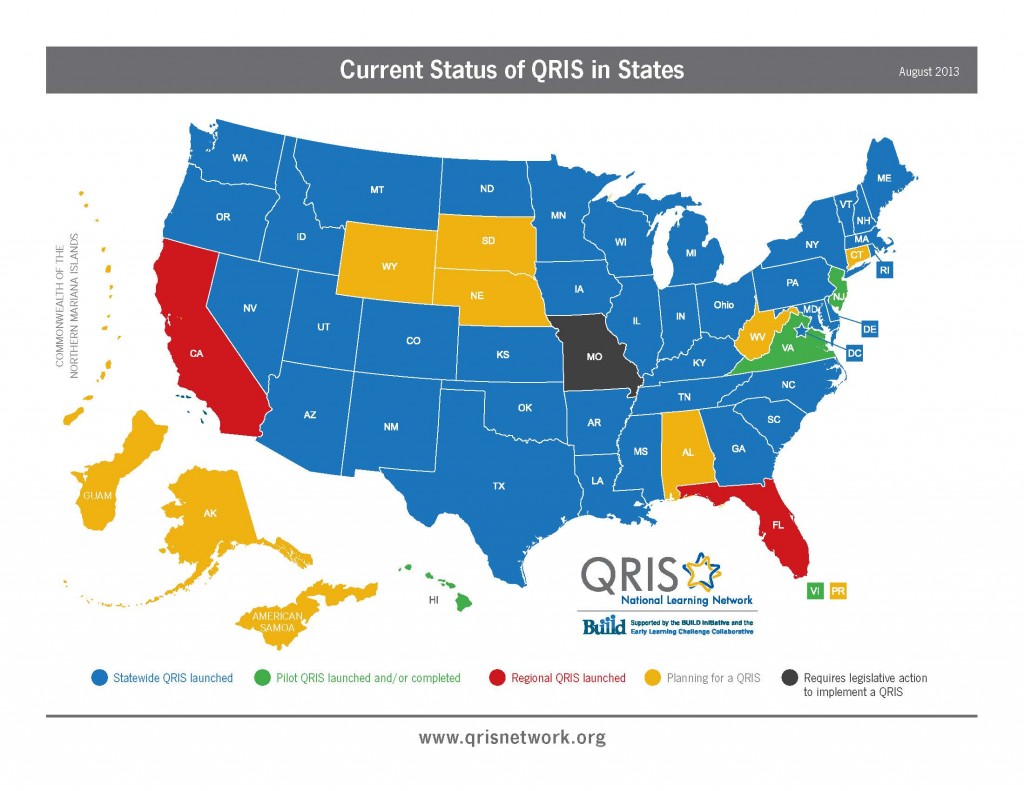
Remember the "Fifty Nifty United States" song—that staple of elementary chorus? I cannot help but sing it when I review any article or document discussing applications for the Race to the Top—Early Learning Challenge (RTT-ELC) grants. The lyrics sprang to mind again when I read about the latest states, along with the District of Columbia, submitting applications for these funds. It’s so exciting to see the list of new applicants pursuing funds to improve and impact their early learning communities.
Arizona, Arkansas, Connecticut, District of Columbia, Georgia, Indiana, Iowa, Kentucky, Michigan, Mississippi, Montana, Nevada, New Hampshire, New Jersey, New York, Pennsylvania, and Vermont (See? Now you’re doing it, too!) are all throwing their hats in the ring to win an ELC grant in this latest round. Awards will be anywhere from $37.5 million to $75 million, depending on the states’ share of at-risk children birth to five years old as compared to the national population. You can learn more about the competition and see the applications for yourself here.

Below, I’ve included a map of states that have a Quality Rating and Improvement System (QRIS). The ELC grants emphasize QRIS so that states that already have a QRIS, or are planning to develop a QRIS, definitely have an advantage in the competition. As you can see from the map, most of the states applying have already launched a statewide QRIS. While New Jersey has finished a pilot, I do wonder how Missouri will fare given that it's the only gray state on the map (the only state to require legislative action to implement a QRIS). My own state Connecticut is in the planning phases, so in many ways I think that could actually help our cause.
As I continue to pore through the applications and speak with the ELC stakeholders, I often hear, “Yes, in our state we are doing CLASS.” This always causes me to pause and ask what that really means, and without fail, I get a different response every time. Each ELC application and QRIS that includes the CLASS system looks a bit different from the next. And that might not be such a bad thing. Just like our partners, we are learning new and better ways to incorporate CLASS observations and related professional development into statewide implementations just by supporting partners who each take a slightly different slant on what it means to “do CLASS.” We’ve started capturing these stories through case studies so that we can all learn from one another’s challenges and successes. And we’re using this blog as a way to continue that dialogue. So, tell us, what does it mean to “do CLASS” and what does it look like in your state?
Of course, I’m always happy to share my thoughts and support you as you think through your CLASS implementations. Feel free to contact me at Amy.Sofka@Teachstone.com anytime.
